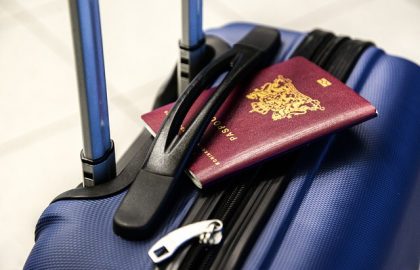 In Venezuela, where I have been a permanent resident for more than 25 years, the question many have on their minds is:
In Venezuela, where I have been a permanent resident for more than 25 years, the question many have on their minds is:
Should I stay in a country where the possibilities seem to be each day more limited, or should I emigrate to a country offering better opportunities?
While this decision is of vital importance to so many here in this tropical paradise which has been divided socially and politically, it is also valid for anyone in the world thinking not only about emigrating, but also for those thinking about making changes in their work, family situation, or any other circumstance begging an answer to the question:
There isn’t a single answer and obviously everyone is different. The elements to consider include, but are not limited to: our family, friends, professional organizations, sports, and hobbies.
When it comes to making a decision about a difficult situation, it’s important we make a good one. For many years, I taught a class on Decision Making, and in a few words these are the steps we should take for most important decisions:
- Define our Objective
- Analyze the Problem
- Generate Solutions
- Take Action
The process is the same for any significant decision, but there is another ingredient, perhaps even more important than these logical steps. We should pay attention and listen to to what many refer to has our “heart”, though my intuition says it has more to do with a sixth sense, often difficult to put into words. It’s that voice we have inside encouraging us to continue when things get complicated. It’s the same voice warning us to proceed with caution.
 Like any animal perceiving danger in the jungle, we also have our senses which generally become aware, though it’s not always clear in the moment the reason why. From the time we are young, we are frequently taught to ignore our feelings. We are trained to see them as a negative forces, to be rejected in favor of logic and reason. They tell us that, “Big boys don’t cry,” and that, “Little girls should always look pretty.”
Like any animal perceiving danger in the jungle, we also have our senses which generally become aware, though it’s not always clear in the moment the reason why. From the time we are young, we are frequently taught to ignore our feelings. We are trained to see them as a negative forces, to be rejected in favor of logic and reason. They tell us that, “Big boys don’t cry,” and that, “Little girls should always look pretty.”
In many cases we repress our emotions preferring to relegate ourselves to well-founded analysis when it’s time to make a decision. As to how our emotions relate to the question:
“Should I stay or should I go?”
In my way of thinking, it’s even more important to listen to that internal voice, paying close attention to what it says. For some people the voice comes clear and strong, indicating a quick exit is the best choice. For others, family ties and/or work related issues can be more important from one moment to the next.
 For those who decide to leave Venezuela, I give them my best wishes. There are many opportunities in a world which seems smaller every day. In the morning we can be eating breakfast in Paris, and in the evening dining in New York. The borders of the world may still be controlled by visas and permissions, but if you really want to expand your horizons, not even the sky is the limit.
For those who decide to leave Venezuela, I give them my best wishes. There are many opportunities in a world which seems smaller every day. In the morning we can be eating breakfast in Paris, and in the evening dining in New York. The borders of the world may still be controlled by visas and permissions, but if you really want to expand your horizons, not even the sky is the limit.
For those choosing to stay in Venezuela, I also give my best wishes. As is the case with the rest of the world, there are also many opportunities right here where we are, though granted they may be more difficult to find. Remember, some of our greatest achievements in the world have come from the most difficult of circumstances. For those willing to use their creativity to fulfill the needs of those who choose to stay in the country, neither is the sky the limit.
The decision to stay or go is by no means easy. Perhaps more important than the decision itself is the attitude with which we implement it. The best desires and intentions tumble with indecision and laziness. Even the worst decision can become a blessing when the actions taken to achieve it are filled with certainty and drive. Make the decision and then do all you possibly can to make it the best option.
∞ Rob McBride ∞
LL IV 33


